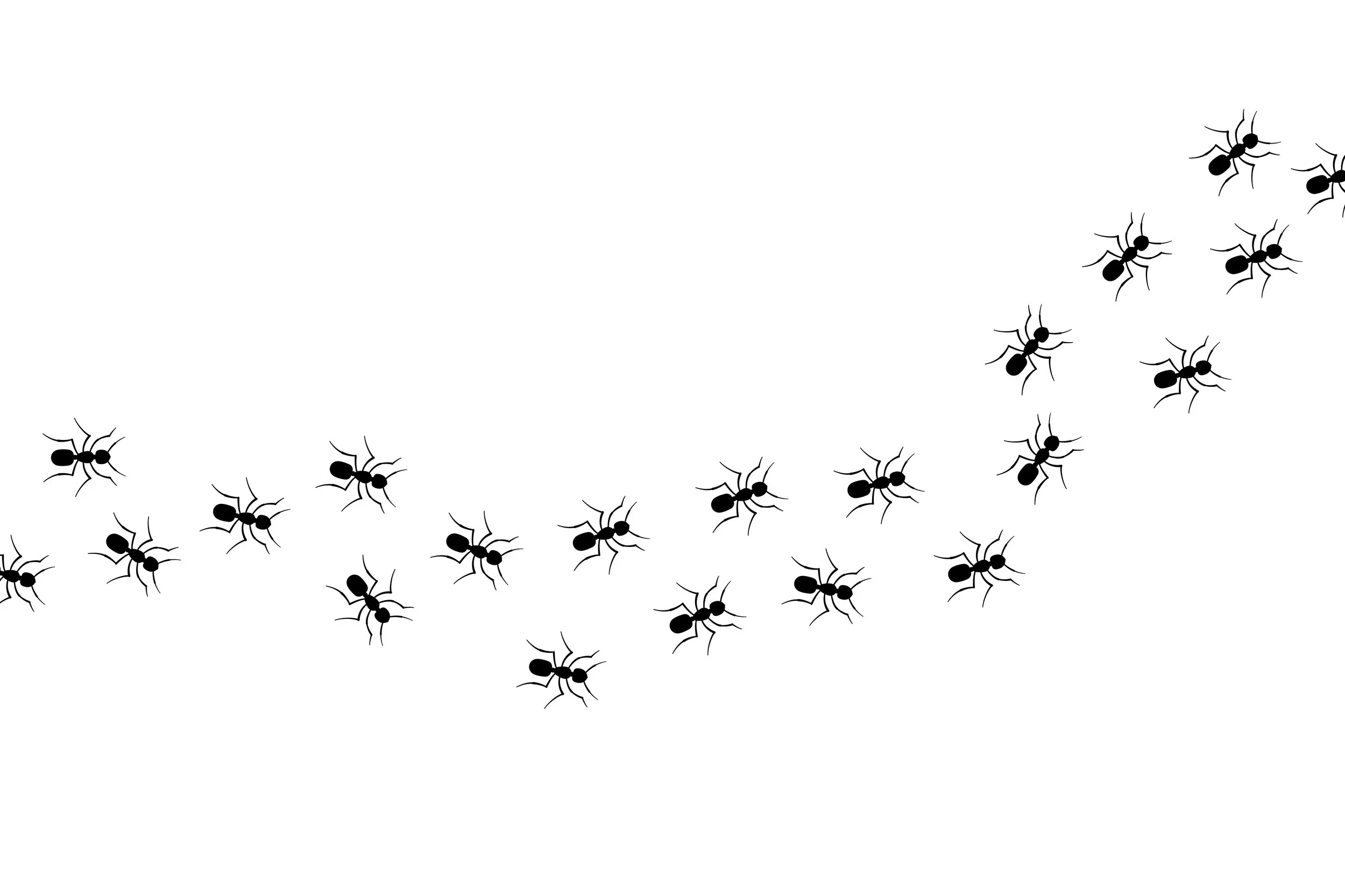Do You Have ANTs in Your Classroom?
How Educators Can Recognize and Reframe Automatic Negative Thoughts—for Themselves and Their Students
Let’s be honest—there’s no pest quite like the kind that shows up uninvited, ruins your day, and refuses to leave. And no, I’m not talking about the six-legged kind that invades your picnic, but something equally annoying: Automatic Negative Thoughts. Coined by psychiatrist Dr. Daniel Amen in Change Your Brain, Change Your Life, ANTs are those uninvited mental pests that crawl into your thoughts, sabotage your peace, and multiply if left unchecked. They whisper things like:
“I’m failing my students.”
“That parent email means I’m in trouble.”
“No one appreciates what I do.”
Sound familiar? You’re not alone. In fact, most of us have experienced an ANT infestation in our minds at some point. The key is recognizing them before they take over the whole school (or at least our emotional state). Let’s identify those mental pests and learn how to reclaim your power!
What Are ANTs?
Dr. Amen describes ANTs as those automatic, habitual thoughts that lean negative—especially under stress. For educators, stress is part of the job description. Add to that our perfectionist tendencies and big hearts, and it’s no surprise ANTs find fertile ground.
These thoughts often feel true, but they’re usually irrational and self-defeating. The good news? Just like you wouldn’t tolerate a real ant trail in your classroom, you don’t have to tolerate these mental invaders either. You can learn to squash them- metaphorically, of course- I’m not promoting violence.
The 9 Types of ANTs (Know Thy Enemy)
Dr. Amen breaks down ANTs into 9 categories. Maybe you’ve experienced some of these ANTs in the teacher’s lounge…
All-or-Nothing Thinking ANT
“This lesson bombed. I’m a terrible teacher.” / “My students never listen.” / “I’m always behind.”
Everything is black or white, success or failure. All good or all bad with no middle ground. Spoiler: That’s not how teaching (or life) works. Look for words like always, never, every time. These exaggerations are emotional, not factual.Less-Than ANT
“Mrs. Perfect is the favorite teacher. I’ll never be as good as her.”
This ANT looks outside of itself and compares itself to others, seeing itself as less than others. It’s important to remember we all have different strengths and teaching styles. You don’t have to be like someone else to be amazing- be YOU!Just the Bad ANT
“Twenty-five kids were engaged, but I can’t stop thinking about the one who wasn't.”
This ANT scans for what’s wrong and ignores what’s right. It’s a spotlight on failure, even in the middle of success.If-Only and I’ll-Be-Happy-When ANTs
“If only COVID hadn’t happened, my students wouldn’t be behind.” / “I can’t wait till summer break!”
This ANT often argues with the past, or longs for the future rather than taking control of the present.Guilt-Beating ANT
“I should’ve graded those essays last night.” / “I must do more.”
These thoughts use should, must, or ought—and usually leave you feeling guilty, inadequate, or overworked.Labeling ANT
“I’m such a bad teacher.” / “He’s just lazy.”
When we reduce ourselves (or others) to a single negative label, we miss the full picture—and growth becomes harder.Fortune-Telling ANT
“This class is going to be a disaster.”
Predicting the worst before anything happens. Hello, anxiety! This ANT is notorious for ruining mornings and creating a self-fulfilled prophecy!Mind-Reading ANT
“The principal thinks I’m not doing enough.” / “That parent is judging me.”
Unless you’re psychic (and if so, let’s talk), you can’t know what others are thinking. This ANT makes assumptions with no evidence.Blaming ANT
“I’d be fine if the admin actually supported us.”
It’s tempting to point fingers, but blaming strips us of our power to respond and grow. It puts control outside of ourselves.
These thoughts feel real, but they’re rarely true. They distort our perception and rob us of the resilience we need to thrive—especially in a profession where every day is unpredictable and emotionally charged.
Why ANTs Matter in the Classroom
The way we think affects the way we teach. When ANTs are running wild, we can become discouraged, reactive, or disconnected. Even worse, our students—who are always watching—start to adopt the same toxic thinking patterns.
But here’s the empowering part: when we catch and challenge our ANTs, we model resilience, reflection, and emotional regulation. These aren’t just life skills—they’re survival tools for today’s kids.
Pest Control: 5 Steps to Kick Out the ANTs
Name It to Tame It
Start by noticing the thought. Give it a name: “Oh, hey, Fortune-Telling ANT!”Ask: Is It True?
Dr. Amen suggests interrogating the thought like a suspicious package. Is it 100% true? What evidence do you have?Flip the Script
Replace “I’m a terrible teacher” with “Today was hard, but I’m learning and adjusting.”Make It a Habit
Consider a daily “ANT Check.” Journal, reflect, or take 60 seconds during your commute to review your thoughts.Teach the Strategy to Students
Kids have ANTs too! Help them identify, name, and challenge negative thoughts. Make it fun—use drawings, thought journals, or role-plays.
For Staffrooms and Classrooms Alike
Create an “ANT Bulletin Board” in your break room. Invite staff to anonymously post their ANTs and reframe them.
Use “Thought Detective” activities with students—searching for clues to challenge negative beliefs.
Normalize it: “We all have ANTs sometimes. What matters is what we do next.”
Final Thoughts
You might not control what shows up in your inbox, but you can control how you talk to yourself about it. You’re not your thoughts. You’re the observer of them. When you start identifying and evicting your ANTs, you open the door for more accurate, kind, and empowering thoughts. By doing so, you create a space for compassion, growth, and resilience- for yourself and your students. As Dr. Amen puts it, “ You don’t have to believe every stupid thought you have.”
So the next time you’re spiraling over a less-than-perfect lesson, remember: it might just be an ANT. Step on it, smile, and keep moving forward.

